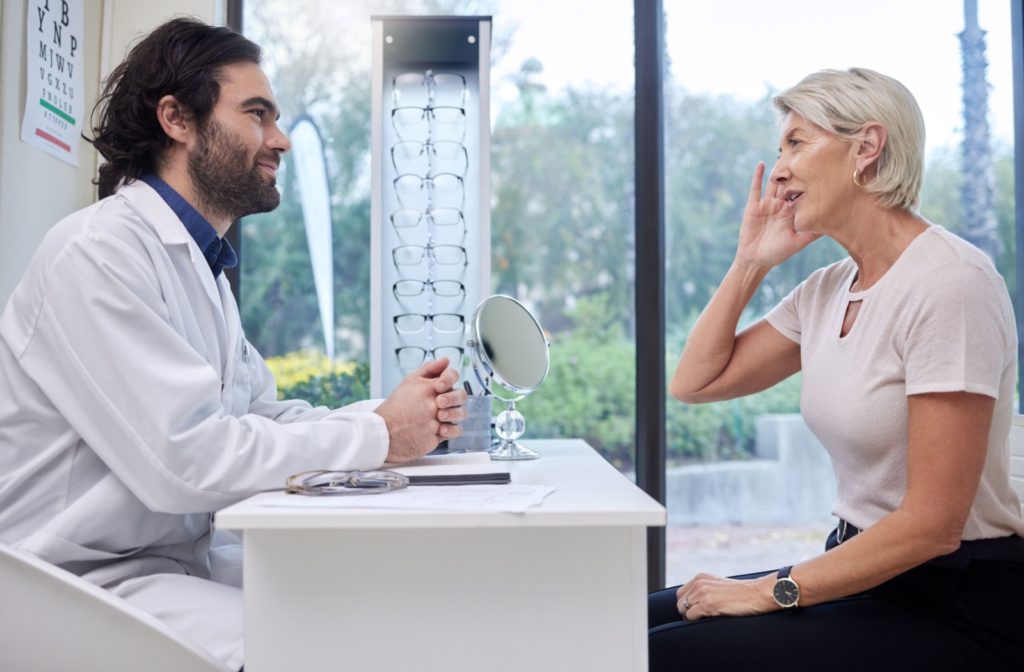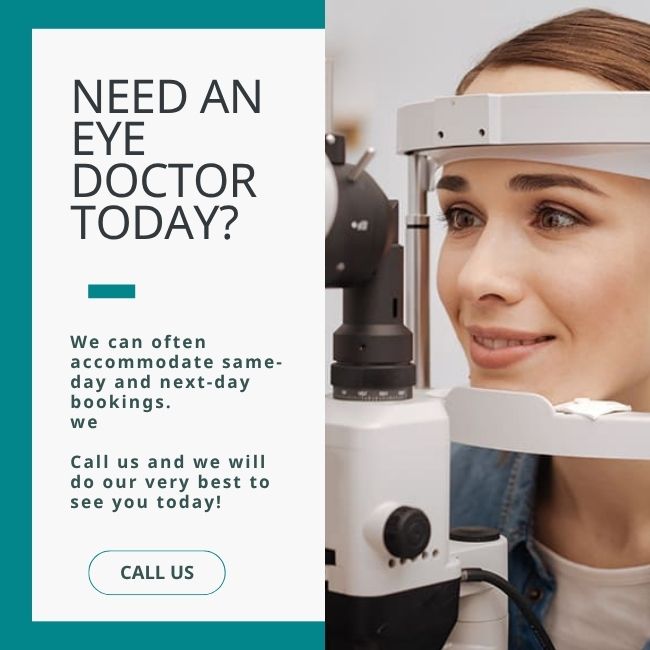Our vision is arguably one of the most cherished of our 5 senses, signifying the importance of maintaining our ocular health. But could something like dry eyes, often associated with discomfort, cause serious problems? While rare, untreated, chronic dry eyes could lead to serious complications, including vision loss or blindness. And even if it doesn’t lead to literal blindness, no one can deny the effect that dry eyes can have in our daily lives.
There often isn’t a one-size-fits-all answer to the most effective treatment for dry eye because it ultimately depends on the cause and symptoms. Sometimes, over-the-counter (OTC) lubricating eye drops are enough to bring relief, but other times, a clinical therapy like TempSure Envi might offer effective results. Your eye doctor can recommend an effective treatment tailored for your eyes.
Understanding Dry Eye
Dry eye syndrome, or simply dry eye, is an uncomfortable condition in which the eye fails to produce enough tears to adequately lubricate the eye’s surface or the tears produced are poor quality. The result is an array of symptoms that can range from transient irritation to a debilitating chronic condition where it’s hard to keep your eyes open.
Causes of Dry Eye
There isn’t one particular thing that causes dry eyes—the causes can be as varied as the symptoms one might experience. Common causes include:
- Environmental factors such as dry or windy climates
- Age
- Genetics and family history
- Medications that reduce tear production
- Health conditions such as rheumatoid arthritis or diabetes
- UV exposure
- Hormonal changes
Symptoms of Dry Eye
Dry eye symptoms can be both bothersome and disruptive to daily life, with common indicators including:
- A feeling of something in the eye
- Redness and irritation
- Light sensitivity
- Stringy mucus in or around the eyes
- Excessive tearing—this is the body’s overcompensation to the dryness
Dry Eye’s Potential Link to Blindness
Mild to moderate cases of dry eye are unlikely to cause anything more severe than discomfort and are unlikely to lead to permanent damage or blindness. However, extended periods of untreated and severe dry eye can lead to permanent cornea damage. Corneal damage can cause blurry or cloudy vision and may lead to blindness.
Complications & Severity
The severity of dry eye syndrome can increase over time, especially if left unmanaged. Complications that can lead to vision impairment include:
- Corneal abrasions and ulcers
- Corneal scarring that can distort vision
- Eye infections due to damage and weakened defenses
Though it’s alarming to consider, the potential for dry eyes to cause blindness is not just theoretical. It’s a possibility that underscores the importance of proactive eye care and regular screenings, especially for individuals at higher risk.
Medical Interventions & Management
Meibomian gland dysfunction (MGD) is a leading cause of dry eye, affecting over a third of the world’s population. Several effective treatments are available for MGD-related dry eye. TempSure Envi is a radiofrequency technology that gently warms the meibomian glands to loosen blockages and encourage proper oil flow for high-quality tear film.
Other Treatments & Therapies
TempSure Envi may not be right for everyone, but here are other possible therapies and home remedies one can try:
- Artificial tears and lubricating eye drops can provide symptomatic relief
- Your eye doctor may prescribe medications to decrease inflammation or stimulate tear production
- In-office procedures such as LipiFlow, which treats meibomian gland dysfunction or punctal plugs, which block tear ducts to prevent tears from draining and keep the eyes more moist
- Using a hot compress is also proven to help relieve dry eye symptoms
Preventive Measures
Fortunately, various lifestyle adjustments can help prevent or manage many cases of dry eye. Some ways one can mitigate the effects and potentially stave off any serious damage to their vision include:
- Blink more frequently, especially while using digital devices
- Take breaks to rest your eyes from screen time
- Maintain proper hydration levels to support tear production
- Make sure you are getting sufficient sleep
- Add omega-3 fatty acids to your diet or as a supplement, which may help with tear production
- Avoid allergens that may make dry eye symptoms worse
Importance of Regular Eye Exams
You cannot overstate the role of eye exams in managing dry eye. Early detection and intervention can prevent the condition’s progression and mitigate the potential threat to one’s vision. Eye doctors are equipped to diagnose the type and severity of dry eye, and they can provide suitable treatment plans for each individual case.

Discuss Your Symptoms with Your Eye Doctor
The link between dry eyes and blindness is not a straightforward one. In most cases, dry eye syndrome will not directly cause blindness. However, it’s clear that chronic and severe cases of dry eye can threaten one’s vision. The key takeaway is the importance of proactive eye care.
Call our team at Trinity Hills Eyecare today to book an appointment. One of our optometrists can discuss your symptoms, examine your eyes, and offer a tailored treatment plan to get you the relief you need.




